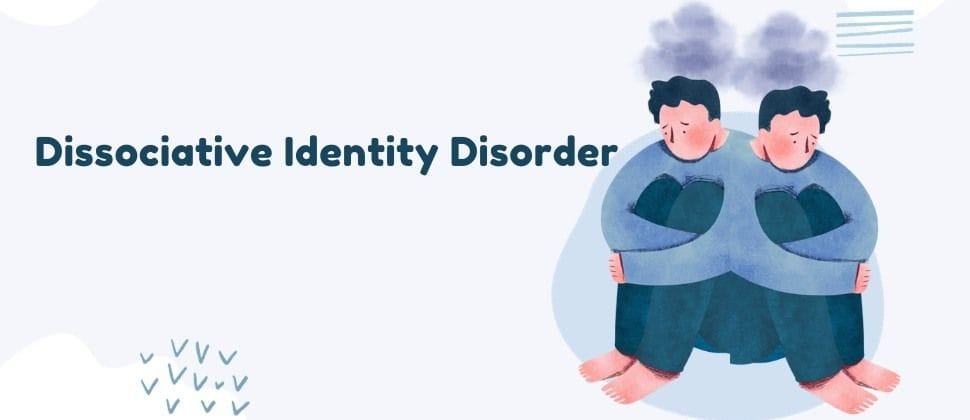How Do You Know If Someone Has DID?
DID common symptoms might suddenly start feeling like they want different things or like they are different people.

Dissociative Identity Disorder (DID), formerly known as Multiple Personality Disorder, is a complex mental health condition that can be challenging to identify. This comprehensive guide will explore the key signs and symptoms that may indicate someone has DID, as well as the importance of professional diagnosis and treatment.
Understanding Dissociative Identity Disorder
DID is characterized by the presence of two or more distinct personality states or identities within an individual. These identities, often referred to as "alters," can have their unique characteristics, memories, and behaviors. The disorder typically develops as a coping mechanism in response to severe trauma, particularly during childhood.
Key Signs and Symptoms
Memory Gaps and Time Loss
One of the most significant indicators of DID is the presence of substantial memory gaps or periods of loss. Individuals with DID may find themselves in unfamiliar places without knowing how they got there, or they may be unable to recall important personal information.
Identity Confusion and Alteration
People with DID often experience a profound sense of confusion about their identity. They may struggle to define their interests, beliefs, or ambitions, and may feel uncertain about who they are. In some cases, they may perceive the presence of distinct identities, each with its name, voice, and personality.
Depersonalization and Derealization
Feelings of detachment from oneself (depersonalization) or one's surroundings (derealization) are common in DID2. Individuals may feel as if they're watching themselves from outside their body or that the world around them is distorted or unreal2.
Sudden Mood and Behavior Changes
Rapid and unexpected shifts in mood, behavior, or abilities may be observed in someone with DID. These changes can be subtle or dramatic and may be accompanied by alterations in voice, mannerisms, or even physical characteristics like the need for eyeglasses.
Dissociative Amnesia
People with DID may experience periods where they cannot recall important personal information or specific events, beyond what would be explained by ordinary forgetfulness4. This amnesia is often related to traumatic experiences and can vary in duration and severity.
Additional Signs to Look For
Sleep Disturbances
Individuals with DID often experience sleep-related issues, including insomnia, nightmares, and sleepwalking5. These disturbances can exacerbate other symptoms and contribute to overall distress.
Presence of Co-occurring Mental Health Conditions
DID frequently co-exists with other mental health conditions, such as depression, anxiety, eating disorders, and substance abuse. The presence of these additional symptoms can sometimes mask the underlying dissociative disorder.
Physical Symptoms
Some individuals with DID may experience physical symptoms such as headaches or altered pain perception5. In rare cases, they may even exhibit seizure-like episodes4.
The Importance of Professional Diagnosis
It's crucial to note that many of these symptoms can be associated with other mental health conditions. Only a qualified mental health professional can accurately diagnose DID. The diagnosis process typically involves a comprehensive evaluation, including a detailed medical and psychological history, and may utilize specialized assessment tools.
Seeking Help and Treatment
If you suspect that someone you know may have DID, it's essential to encourage them to seek professional help. Treatment for DID typically involves long-term psychotherapy, with a focus on processing traumatic experiences and integrating the different personality states.
Key Takeaways
Recognizing the signs of Dissociative Identity Disorder can be challenging, as the condition often manifests in subtle ways. While the presence of multiple distinct identities is a hallmark of the disorder, it's important to remember that only about 5% of individuals with DID exhibit obvious switching between identity states.
If you or someone you know is experiencing symptoms that may indicate DID, it's crucial to consult with a mental health professional. With proper diagnosis and treatment, individuals with DID can learn to manage their symptoms and improve their quality of life.
Remember, mental health conditions are complex, and self-diagnosis is not recommended. Always seek the guidance of a qualified healthcare provider for accurate diagnosis and appropriate treatment.
What Are Alters?
Alters are like different characters in a play. Imagine one day you're a superhero, and the next day, you're a detective. That's a bit like what it's like for someone with DID. These characters can be very different. They might be boys or girls, have different interests, and even speak in different ways.
More Signs of DID
- Feeling very worried (anxiety).
- Believing in things that aren't real (delusions).
- Feeling very sad (depression).
- Being confused about where you are (disorientation).
- Using drugs or alcohol too much.
- Forgetting things that happened (memory loss).
- Thinking about hurting themselves or ending their life (suicidal thoughts).
It's important to know that people with DID need understanding and support because living with these different characters can be very challenging for them.
